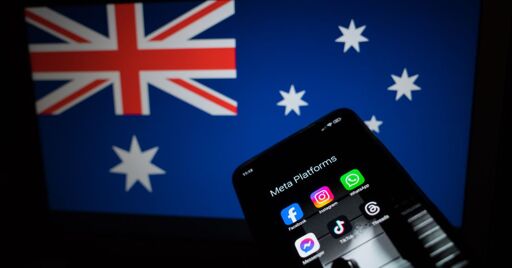China Video Game Ban v2.0: Electric Boogaloo
Parents should be parenting, not delegate their responsibilities to a nanny state.
The ban and age verification requirements apply to pretty much all services which allow communication of information between people, unless an exemption is granted by the minister.
There is no legislated exemption for instant messaging, SMS, email, email lists, chat rooms, forums, blogs, voice calls, etc.
It’s a wildly broadly applicable piece of legislation that seems ripe to be abused in the future, just like we’ve seen with anti-terror and anti-hate-symbol legislation.
From 63C (1) of the legislation:
For the purposes of this Act, age-restricted social media platform means:
- a) an electronic service that satisfies the following conditions:
- i) the sole purpose, or a significant purpose, of the service is to enable online social interaction between 2 or more end-users;
- ii) the service allows end-users to link to, or interact with, some or all of the other end-users;
- iii) the service allows end-users to post material on the service;
- iv) such other conditions (if any) as are set out in the legislative rules; or
- b) an electronic service specified in the legislative rules; but does not include a service mentioned in subsection (6).
Here’s all the detail of what the bill is and the concerns raised in parliament.
- a) an electronic service that satisfies the following conditions:
teen go to website
please enter your birthdate
1/1/2000
welcome!
Lawyer sues tech company
But we asked for the birthday
Lawyer points to law text
Company fined
Some mastodon instance has it covered already. https://eigenmagic.net/@daedalus/113519360107067092
the rules are expected to apply to the likes of Facebook, Instagram, Snapchat, and TikTok, per the Prime Minister.
Sites used for education, including YouTube, would be exempt, as are messaging apps like WhatsApp.
The law does not require users to upload government IDs as part of the verification process.
Sounds like a pretty weak law. It will require a birthday when creating an account and accounts under the age of 16 will be restricted/limited. As a result users (people under 16) will lie about their age.
Companies don’t like this because it messes with their data collection. If they collect data that proves an account is under 16 they will be required to make them limited/restricted. However they obviously collect this data already.
I wonder if Facebook and other apps will add/push education elements in order to become exempt.
Any stonger, and they wander into China “Great Firewall” territory.
Lets not make every country into an authoritarian shithole.
Oh I agree. I wouldn’t want a stronger law. I’m just not too concerned with this one. I think if there are concerns with social media we should discuss how to solve them for everyone.
We generally say 16-21 you are an adult so fuck it, whatever happens to you is your fault and ignore the predatory nature of organizations.
We should outline the specific concerns and determine what, if any, steps we can take.
As an example, gambling. I think it’s fair and reasonable to allow gambling. I think ensuring gambling isn’t predatory is a reasonable limitation. I expect for most people it isn’t a problem but I think providing help to gambling addicts is also reasonable. Social media should be viewed through a similar lens.
The second i have to hand over my id to a tech company is the second i leave and never come back.
Also how they gonna manage the fediverse? Can someone get fined for providing social media to themselves if an under 16 sets up their own federated instance?
In my country they talked about this. And they thought of a different approach.
The government were to emit anonymous digital certificates after validate your identity. And then the websites were only required to validate these anonymous digital certificates.
Or even it was talk that the government could put a certificate validation in front of the affected ip.
So the bussiness won’t have your ip. Only a verification by the government that you are indeed over certain age.
What if I’m also uncomfortable with the tech company knowing what country I’m a citizen of?
They know it already.
IP reveals general location.
Sure, and my IP is something I can control (VPN). I also travel, and I’m certainly not a citizen of each country I visit.
Now ban parents posting pictures of their children under 16.
I DGAF about your kids.
Now everyone gets to hand over their ids to the tech companies.
We should make a bet how long it will take before the ID databases get leaked.







